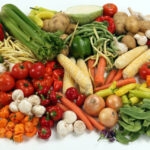BREAST MILK, FORMULAS AND OTHER DAIRY FOR CHILDREN

When we are born, the first food we consume is milk, typically breast milk, and hopefully from our own mother. Unfortunately, not all women are able to breast feed their newborn infant. When breast feeding is not a viable option, breast milk analogues are a suitable and easily obtainable alternative. While we cannot simply buy breastmilk from the shops, breast milk analogues are widely available in supermarkets and pharmacies (drug stores) in most parts of the world. Milk can also be fermented to produce cheese, butter milk, kefir, yoghurt, etc…and some of these are enjoyed by young children.
Nutritionally, milk and other dairy foods are great sources of protein, calcium, B group vitamins, and vitamin D. They help keep our muscles, bones, nerves, heart, skin, and eyes functioning and strong.
Let’s have a look at milk and dairy foods commonly consumed in the early stages of our lives
For people with diabetes
To those of you who count your carbohydrate intake in grams, exchanges or portions, we have included the details for each of these.
15g carbohydrate exchange – a serve containing 12-18g carbohydrate.
10g carbohydrate portion – a serve containing 7.6-12.5g carbohydrate.
| Energy | Available carbohydrate (g) | Exchanges | Portions | Glycemic load (g) |
| 280 kJ or 70 Cal | 6 | 0.5 | 0.5 | 2 |
| Energy | Available carbohydrate (g) | Exchanges | Portions | Glycemic load (g) |
| 280 kJ or 70 Cal | 7 | 0.5 | 0.5 | 1-2 |
| Energy | Available carbohydrate (g) | Exchanges | Portions | Glycemic load (g) |
| 275 kJ or 65 Cal | 7 | 0.5 | 0.5 | 2 |
| Energy | Available carbohydrate (g) | Exchanges | Portions | Glycemic load (g) |
| 540 kJ or 130 Cal | 9 | 0.5 | 1 | 2 |
| Energy | Available carbohydrate (g) | Exchanges | Portions | Glycemic load (g) |
| 210 kJ or 50 Cal | 12 | 1 | 1 | 6-7 |

Karen Ky Lau is an Accredited Practising Dietitian who works as a Research Dietitian at Sydney University Glycemic Index Research Service (SUGiRS).
Contact: here







